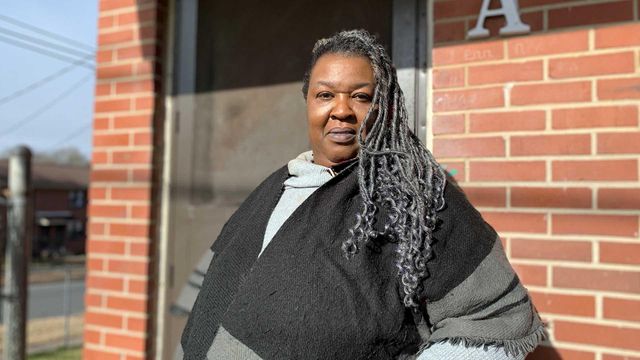A year after carbon monoxide crisis, some McDougald Terrace residents still live in fear
Even with freezing winter temperatures, Tanya Kelley keeps the windows to her McDougald Terrace apartment in Durham open and her gas heater off.
Posted — Updated"There’s nothing changed. It’s just you put another heater in here, but nothing changed," she said.
"The CO work that needed to be done has been completed. All new heating systems, all new venting, new expansion tanks to the hot water heaters, all those things have been done," Scott said recently.
But the pandemic prevented the DHA from completing the transition to electric appliances. Scott said residents were moved back home as soon as possible last spring to limit their risk of contracting coronavirus, and all work, which would have required an extra few days' stay in a hotel, was put on hold.
"We will wait until the pandemic is more under control and we feel safer with residents going to hotels," he said.
Kelley said she's asked to move to a different DHA property where she can feel more secure for both herself and her grandchildren.
"We got to do better for the kids. All these kids deserve better than this," she said. "Something has to be done."
"That $9 million took up a significant chunk of all the money we had for all of our public housing communities," he said. "You have a deficit that has grown and grown, and that’s part of the challenge we have. We are dealing with repairs that should have been done 15 or 20 years ago, in some cases."
McDougald Terrace, the oldest public housing complex in Durham, scored 31 on a 100-point scale in a 2019 U.S. Department of Housing and Urban Development inspection. No federal inspection was done last year because of the pandemic, and Scott said, even with all of the repairs done, he's not sure the complex would pass now.
"The HUD inspections are not the standard that we actually want to have our properties held to. We think that the HUD standards are sort of minimal," he said. "I think McDougald would pass, but probably, if it did, it might be right around 60, which, again, is not where we want to be."
The score likely would remain low, he said, not because of carbon monoxide issues but because of other long-standing repair needs, from leaky pipes to holes in walls to broken door knobs.
But the DHA needs to balance the expense of repairs against a long-term plan to tear down the 58-year-old complex and replace it with mixed-income housing, Scott said.
"We want to deal with any repairs that are necessary when they are necessary. If something breaks down, we are going to fix it," he said. "We think that our public housing residents deserve to live in communities that anyone would want to live in."
Kelley agrees, saying Durham needs to do more for her and other McDougald Terrace residents.
"We can’t keep putting a Band-Aid over something that needs surgery – complete surgery," she said. "I understand that we live in the projects, but we’re still humans."
Related Topics
• Credits
Copyright 2024 by Capitol Broadcasting Company. All rights reserved. This material may not be published, broadcast, rewritten or redistributed.






